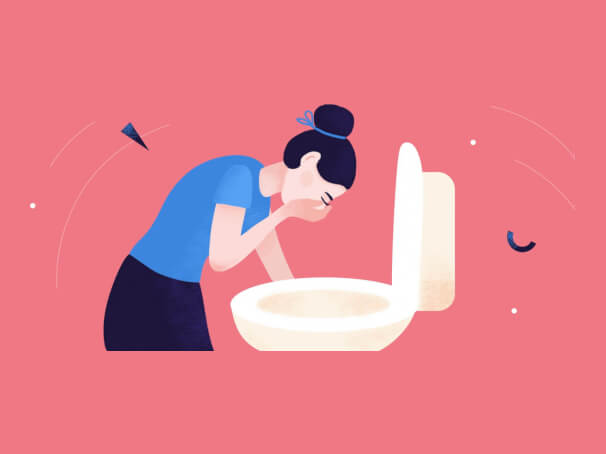
Anxiety can cause many symptoms that mimic other illnesses, and one such symptom is a sore throat. Sore throats are usually a warning sign of an illness, which is why any and all sore throats should be checked out by a doctor just in case. But they may also be a secondary symptom of anxiety, and the natural reaction that people have to anxiety disorders.
Sore Throat is a Secondary Anxiety Symptom
Many people report that their anxiety directly causes a sore throat. This is possible, but fairly rare. Sore throat is better described as a "secondary" anxiety symptom. Secondary symptoms are physical issues that occur because of another anxiety symptom, not because of the initial anxiety.
But the best way to understand an anxiety sore throat is to recognize that some anxiety symptoms cause responses that lead to new symptoms. For example:
- Mouth Breathing Many people find that when they have anxiety, they become more prone to taking deep breaths through their mouths in an attempt to get more air. This can dry out the throat, and lead to the feeling of having a sore throat.
- Coughing Similarly, many people develop anxious coughing as a result of their anxiety. The coughing is the primary anxiety symptom, but too much coughing can hurt the throat, which in turn leads to a sore throat as a secondary anxiety symptom.
- Nighttime Hyperventilation Many people breath in awkwardly when they sleep. This relates to mouth breathing, but it's not a guarantee. When you sleep this way, often too much air goes into your throat and closes it, which in turn can cause you to wake up with an irritated throat.
- Allergies Anxiety can also make your allergies worse. Again, here anxiety isn't causing the sore throat directly. But those with allergies often find that their allergies become worse when they have anxiety, thus increasing mucus buildup and, in turn, irritating the throat.
- Colds Finally, it's important to remember that anxiety may not be causing a sore throat. You may genuinely have an illness, like the common cold. But anxiety may cause you to focus more on the sensation. Many without anxiety can ignore sore throats unless they become too severe, but those with anxiety have an incredibly hard time ignoring those painful sensations.
These are just some examples of the relationship between anxiety and a sore throat. What's clear here is that sore throat is common in those with anxiety, but it's not necessarily the initial anxiety symptoms causing the sore throat. Rather, it's the reaction to those symptoms that are causing it.
How to Naturally Stop the Sore Throat From Anxiety
Because sore throat is a secondary symptom, controlling it involves controlling the primary symptoms. If you're mouth breathing too much, for example, try to breathe through your nose and drink some water to soothe your throat. If you have allergies, consider allergy medications or look for ways to decrease the amount of allergens in your home.
Anything that soothes the throat can be valuable too. There are several warm teas that can help with a sore throat, and many people find that gargling salt water can be beneficial as well. Cough drops may help, along with anything that has peppermint.
Finally, once your sore throat is better under your control, you'll need to start taking steps to reduce your overall anxiety.
I've helped hundreds of those suffering from a sore throat and anxiety stop their anxiety forever.
Summary:
Anxiety itself does not cause a sore throat, but it does cause symptoms like coughing, mouth breathing, hyperventilation, and other symptoms, and those can cause a sore throat. Because it is not the primary symptom, it can be addressed with sore throat-related treatments, but learning to manage anxiety is better in the long term.











